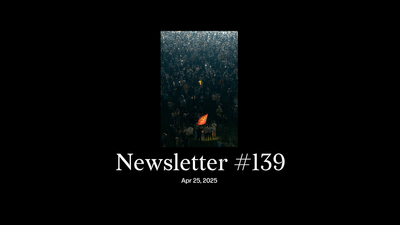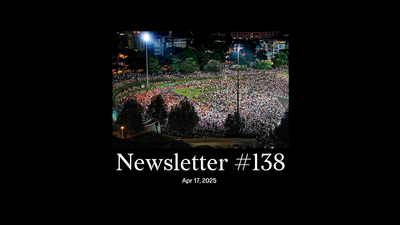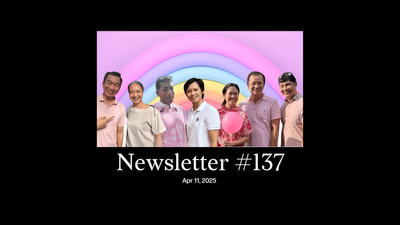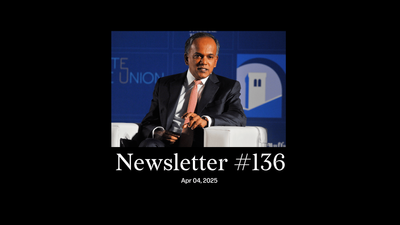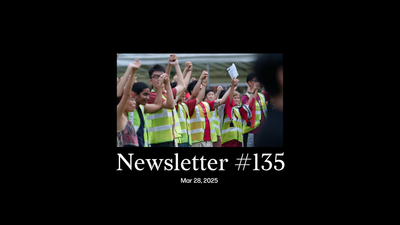Dear reader,
We’ve started selling tickets for Jom’s launch party! 5-8pm, December 2nd Friday.
There’ll be beer, wine, soft drinks and snacks. We are blessed to have two young poets, Jonathan Chan and Poorva Maithani, join us to read their work. There’ll also be a fireside chat with Jom’s co-founders (Charmaine, Waye and me), moderated by Pamela Qiu, an old friend.
But mostly it’s just to hang lah. We’d love to meet you in person. (The ticket price, S$15-30, is just meant to help us cover some F&B costs.)
This has been a fun week for political junkies. Partly because there were clear signs that the ruling People’s Action Party (PAP) simply cannot tolerate any opposition at all—and may very well, at the next election (due by Nov 2025), do all it can to win back every seat.
It began last weekend at the party’s biennial bash in Sentosa, an island befitting some of the world’s highest-paid politicians.
Lee Hsien Loong, prime minister, and Lawrence Wong, deputy prime minister and anointed successor, came out guns blazing, warning the party faithful about the dangers of an opposition, and about the supposed risk that the PAP may lose the next election.
“What are they smoking?” you might reasonably ask, given that the party holds 83 of the 93 elected seats. (“Not weed,” Branson might say.) In “The unchanging PAP playbook”, an op-ed that is free to read, Nicholas Yong and I examine whether the politics of fear still resonates with Singaporeans.
Perhaps taking their cue from their dear leaders, in Parliament this week Indranee Rajah and Grace Fu, two ministers, showed their disregard, if not disdain, for The Workers’ Party’s Pritam Singh and Jamus Lim, respectively. Videos of the exchanges (here and here) have been making their rounds. We’ve written about the incidents in Singapore This Week.
A month before the seminal 2011 election, in which the PAP lost a bigger group constituency for the first time, Tharman Shanmugaratnam said that a strong opposition is good for the PAP and Singapore. Sadly, it appears as if few of his colleagues agree.
Finally, this week Jom has published “What that online course can't offer”, an essay on Massive Open Online Courses (MOOCs) and other online learning platforms.
I really like the narrative approach chosen by Rachel Lee (her pen name), a female data scientist in Singapore. She walks us slowly through her own learning journey, starting from childhood, when she was fiddling with her dad’s microscope and “watching wriggling micro-organisms from the eyepiece”, all the way through to her attempts to learn R programming, a language for statistical computing and graphics, in the hope that it would make her more employable.
There are important lessons here for each of us about the limitations of online learning. I’ve used MOOCs many times before, most recently classes on ancient Chinese and Indian histories, in preparation for a book I’m writing on the two countries and may one day finish (don’t ask). While one class was just brilliant, my overall experience has been mixed.
It’s also something that we need to think about as a society. Reskilling and upskilling are the buzzwords of modern work amid what’s called the “Fourth Industrial Revolution”.
As Rachel shows, it’s not enough to simply fund short, online courses for professionals seeking a career switch. People must also be given lots of opportunities in real-world work settings—and this is where privilege comes into play.
As our economy evolves, industries change, and roles become redundant, it’s our shared responsibility to think harder about the Singaporeans being left behind. And how we can help all of them, not just the fortunate few, stay relevant in a changing world.
Jom baca,
Sudhir Vadaketh
Editor-in-chief, Jom
If you've enjoyed our newsletter, please scroll to the bottom of this page to sign up to receive them direct in your inbox.



